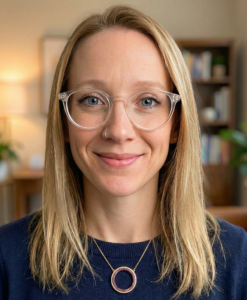About Side Quest Psychotherapy
Neuroaffirming Care for Complex Brains and Bodies
Side Quest Psychotherapy is a neuroaffirming mental health practice offering evidence-based OCD and eating disorder therapy, comprehensive Autism and ADHD evaluations in Maryland, Virginia, and Florida, and nationwide recovery coaching and patient advocacy.
We were created for people with complex brains and complex bodies — especially those whose needs are often misunderstood, flattened, or pathologized within traditional mental health and medical systems.
At Side Quest Psychotherapy, we believe care should honor complexity rather than demand compliance. Our work centers autonomy, lived experience, and nervous-system-aware care for people whose bodies, identities, or life paths do not fit neatly into linear or standardized models of healing.
We reject the idea that healing must be linear, capacity must be constant, or recovery must look the same for everyone.
Identity is not pathology.
Growth is not a checklist.
And you are not a problem to be fixed.
Who We’re Here For
Side Quest Psychotherapy was built for people who have been told — directly or indirectly — that they are “too much,” “not enough,” “treatment-resistant,” “medically complicated,” or “doing recovery wrong.”
We work with:
People whose nervous systems experience demand as threat, including those with Pathological Demand Avoidance (PDA) profiles who have been labeled oppositional, resistant, or “noncompliant”
Intersex and trans people navigating the psychological impact of medical trauma, non-consensual intervention, secrecy, shame, or healthcare gatekeeping
LGBTQIA+ folks who have learned to mask, negotiate, or compartmentalize themselves in order to survive healthcare systems, family systems, or society
People living with OCD, eating disorders, chronic illness, disability, neurodivergence, or medical complexity
People trying to understand who they are beneath expectations of constant productivity, binary gender roles, compulsory health, forced independence, or obedience
Many of our clients are not looking to get “back on track.” For them, the track was never built with their body, identity, nervous system, or need for autonomy in mind.
Why We Exist
Side Quest Psychotherapy was born as an act of resistance.
Resistance to the belief that life must follow a straight line.
Resistance to systems that define worth by productivity, compliance, thinness, health, or how convincingly someone performs “normal.”
Resistance to medical and mental health models that treat disability, neurodivergence, sex variation, gender diversity, and bodily complexity as pathology — and recovery as a return to the status quo.
Many of us were handed a script early on: get good grades, go to college, get a job, buy a house, start a family, hold it all together.
That script is deeply gendered, cisnormative, and ableist — built on assumptions about bodies and nervous systems that are predictable, binary, and endlessly compliant.
For many people—especially those who are neurodivergent, live with OCD, eating disorders, chronic illness, disability, or medical complexity, and/or are LGBTQIA+, including trans, nonbinary, and intersex people—that script often never fit.
That isn’t a personal failure.
It’s a systemic one.
Built for Complexity, Not Compliance
We specialize in outpatient care for people whose needs are often misunderstood by rigid treatment models. Many of our clients are autistic, have ADHD or PDA profiles, live with chronic illness, PANS/PANDAS, medical trauma, or identity-related stress—factors that meaningfully shape capacity, access, and safety, yet are frequently misinterpreted as “noncompliance” or “treatment resistance.”
Our goal is to do as much as possible at the outpatient level of care—safely, ethically, and collaboratively—so escalation is not the default response to complexity.
Some people come to us to prevent unnecessary step-ups into residential, PHP, or IOP that would be destabilizing or harmful. Others come to us after higher levels of care and need outpatient support that can translate gains into real life without recreating surveillance, pressure, or loss of autonomy.
We do not assume something is “wrong” with you because you’re struggling. Instead, we look at what has been shaping your nervous system, body, and capacity over time. When outpatient care is flexible, pacing-aware, and autonomy-affirming, distress is less likely to be misinterpreted as deterioration—and crisis cycling can often be reduced.
Our outpatient work focuses on:
increasing safety and regulation in place
adapting care to fluctuating capacity, medical needs, and nervous system limits
supporting transitions and step-down from higher levels of care
rebuilding agency after coercive or compliance-based treatment
using diagnoses and evaluations for access and self-advocacy, not control
Our approach is explicitly consent-centered and anti-carceral. Therapy, evaluation, and recovery support are not tools for behavioral management. We prioritize continuity, collaboration, and nervous system safety over symptom checklists or forced participation.
Care should adapt to the person—not the other way around.
Especially when complexity is already being mistaken for risk.
Because safety, medical risk, and transitions between levels of care matter deeply—especially for people with complex brains and bodies—we’re transparent about how we approach them.
→ Learn more in Our Approach to Safety, Risk, and Levels of Care.
Frequently Asked Questions
Do you accept insurance?
No. Side Quest Psychotherapy does not contract directly with insurance companies. This allows us to provide flexible, consent-centered care that is not dictated by insurance rules around diagnosis, “medical necessity,” session structure, or compliance-based treatment models. It also helps protect your privacy by limiting third-party access to your health information.
Remaining out of network allows us to do more at the outpatient level of care, including adapting pacing, responding to changing capacity, supporting safe step-down from higher levels of care, and prioritizing nervous system safety and autonomy without pressure to escalate, surveil, or justify care to a third party.
Superbills are available for psychotherapy services only if you plan to seek out-of-network reimbursement, depending on your insurance plan. Diagnostic evaluations, recovery coaching, and patient advocacy are not eligible for superbills.
What’s the difference between therapy and recovery coaching?
Therapy is a licensed, clinical service focused on assessment, diagnosis (when appropriate), and treatment of mental health conditions. At Side Quest Psychotherapy, therapy may include evidence-based treatment for OCD, eating disorders, trauma, and related concerns, and is offered only to clients located in states where we are licensed.
Recovery coaching is a non-clinical service focused on practical, real-world support. Coaching does not involve diagnosis or mental health treatment. Instead, it supports you with things like applying skills outside of sessions, navigating systems, accountability, and day-to-day recovery challenges.
Therapy and coaching can complement each other, but they serve different roles. We are clear about boundaries so you always know what kind of support you are receiving and why.
How do you determine when a higher level of care is needed?
We believe higher levels of care serve a specific, time-limited function and can be lifesaving when outpatient treatment can no longer be provided safely. For eating disorder concerns, this includes medical instability or inability to maintain adequate nutrition or hydration. For suicide risk, this includes imminent danger or when safety cannot be reasonably supported between sessions.
We work as part of a multidisciplinary, community-based team that may include primary care providers, dietitians, psychiatrists, schools, and chosen support people. This team-based approach extends care beyond the therapy hour, strengthens safety, and often reduces the need for unnecessary escalation to more restrictive settings.
We also recognize that higher levels of care can cause harm when used to enforce compliance or override autonomy, particularly for neurodivergent and medically complex clients. Our goal is always the least restrictive level of care that prioritizes safety, dignity, and long-term recovery, with a clear plan for transition back to outpatient care.
What Working With Us Is Like
In practical terms, therapy at Side Quest Psychotherapy is:
Neuroaffirming and anti-pathologizing, grounded in the social model of disability and informed by lived experience of neurodivergence
Relational rather than hierarchical, with shared decision-making instead of authority
Harm-reduction oriented, with a focus on safety and sustainability rather than abstinence or forced recovery
Health at Every Size®–aligned, meaning we do not promote intentional weight loss as a treatment goal. We also acknowledge the real, complex reasons someone may want their body to change and explore these experiences without shame, coercion, or moral judgment
Flexible and sensory-aware, with space for movement, stimming, quiet, food, pets, or parallel play
Direct, transparent, and real, without pressure to perform wellness or progress on a timeline
Sessions may be structured or unstructured, conversational or quiet, insight-oriented or practical. We adapt the work to your nervous system, access needs, and capacity, not the other way around.

Jenna Stone, LCSW-C (she/they)
Founder & Clinical Director
Jenna provides evidence-based, neuroaffirming psychotherapy for OCD, eating disorders, and related concerns; neurodivergent exploration for people seeking understanding and support with or without a diagnosis; comprehensive Autism and ADHD assessments; parent and caregiver support for neurodivergent children, including PDA profiles and complex presentations; and consultation, workshops, and trainings for providers, educators, and organizations.

Marissa Adams, BS (she/her)
Recovery Coach
Marissa provides recovery coaching, meal support, and patient advocacy for people navigating eating disorders, body distress, and intersex-related medical and identity stress. Her work is grounded in a HAES-aligned, harm-reduction approach and informed by ongoing training in inclusive eating disorder education.

Benji (he/him)
Resident Co-Regulator
Benji is a ginger-and-cream Persian cat with a talent for napping, grooming, and making people feel instantly more at ease. He’s fully HAES-aligned and a devoted intuitive eater. Benji takes his role seriously: regulating the vibe, showing up unbothered, and occasionally making surprise appearances in virtual sessions to offer silent support—or demand attention.
Our Name, Our Values
A “side quest” is the part of the journey that isn’t on the main map, but ends up being essential.
It’s where skills are built, identities form, and meaning emerges.
We believe your side quests matter. And we’re here to walk alongside you while you figure out what comes next.
Recovery Reimagined
Here, recovery doesn’t mean returning to productivity at all costs, erasing difference, or performing wellness, gender, or health for external approval. It means building a life that is sustainable within your actual body, nervous system, identity, and capacity for choice, not an idealized or compliant version of any of them.
We believe meaningful support extends beyond a single therapy hour and into real life, especially for people navigating medical systems, disability, chronic illness, gender-affirming care, intersex-related advocacy, and PDA-related autonomy needs. That’s why Side Quest Psychotherapy brings together licensed therapy, neuroaffirming diagnostic evaluation, recovery coaching, and patient advocacy under one practice, with clear boundaries between clinical and non-clinical care.
Your side quest isn’t a distraction or a detour.
It’s where meaning, agency, and direction are built.
Here, you get to be the main character.
